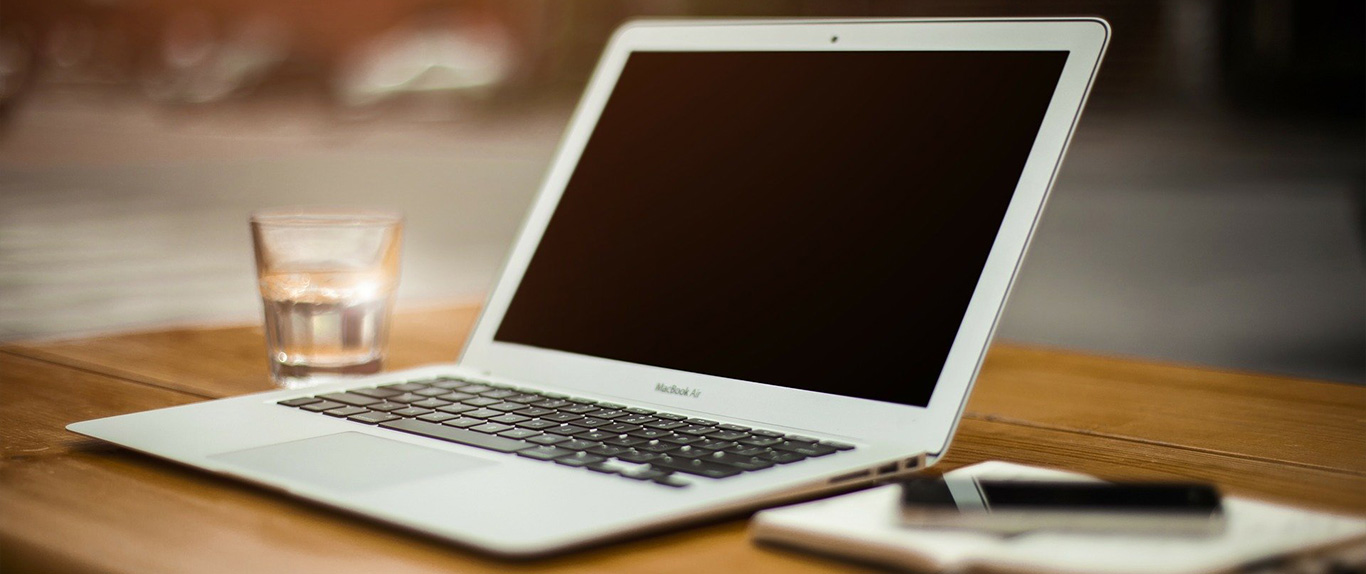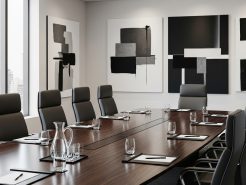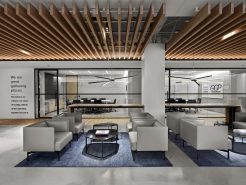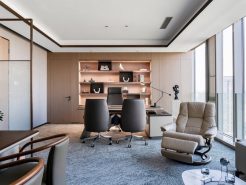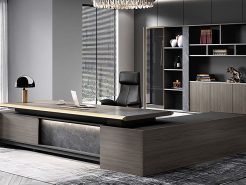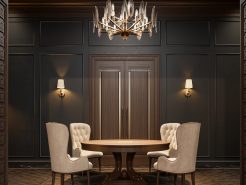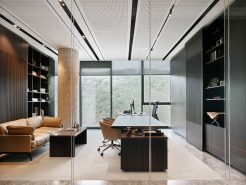Office design according to four new design principles will provide a great experience. After months of working from home, people’s expectations of the workplace have changed. They want and need a safe and engaging workplace that inspires, is more flexible, and helps them get things done. They also want more control over where and how they work, and designers will need to create spaces to address an even more diverse set of needs (Read more about people’s new needs in Work Better). Different design approaches will be required to create spaces that support new ways people want to work and things that organizations need to compete effectively.
Office design according to the principle of equal support for individual and group work.
While some believe that the main reason people want to work in the office is to be in groups. People say they also want to be able to focus. And work in a professional environment. Relying on home offices to support personal work is not feasible for an organization. Because of many factors—such as limited home space. Sometimes it’s distractions or commute times—making it difficult for everyone.
Designers need to balance the needs of teams and individuals. By creating neighborhoods where work and personal intersect. Specifically, workable spaces can also be rested or used for their own purposes.
Office design according to the principle of flexibility
This principle has been mentioned a lot in office design trends 2023. This principle helps to bring flexibility to the entire space in terms of both functionality and design. Until now, the design has often been based on the standards and formulas available to proceed. These formulas and norms are always aimed at fixation as well as establishing a framework for the office. In fact, after the epidemic has changed, the restraint has become negative in the experience.
To remove that, the new design requires flexibility, easy transformation during use. This will be in line with the needs of personnel in quickly shifting status. Flexibility needs to be used in both design and interior implementations.
Use a lot of private space in an open style
The experience of working from home and returning to work from the office has brought about a change in the paradigm. People who often work individually in spacious spaces feel apprehensive. They need more than barriers, walls that provide privacy to feel safe. But I just want that privacy in my personal work.
And groups and rooms you often work in closed rooms want to be more open. They want workspaces that are both flexible, spacious and safe. To be able to fit everyone’s needs, a flexible working model is necessary. In particular, adjusting to shrink or expand space becomes simple. And more private spaces are needed throughout the open workspace.
Designers will need to think about ways to reinvent workspaces. Four walls and a door are not always needed. As well as individual spaces that feel more protected.
Enhancing the human experience through technology
People and organizations will accept hybrid work from home and office. Travel will be less frequent and therefore remote linking using technology will be frequent. Designers need to create solutions for individual and group video interactions. Make sure that there will be no restrictions on a laptop or phone. Sensor technologies will need to be embedded to support data-driven or artificial intelligence experiences.
In general, audiovisual technology will be used more in office designs. Ensure that the application of technology including both colors and trends is prioritized.
=====\
PROCE – TOTAL LUXURY OFFICE SOLUTION
Website: https://proce.vn/
Youtube: https://www.youtube.com/channel/UCmHTphVmf6cD9N9nwbb5kvA
Fanpage: https://www.facebook.com/vanphongnhapkhauProce
GG Business: https://business.google.com/dashboard/l/15115233216900975876
Linkedin: https://www.linkedin.com/company/74359718/admin/
Hotline: 090.115.6767

